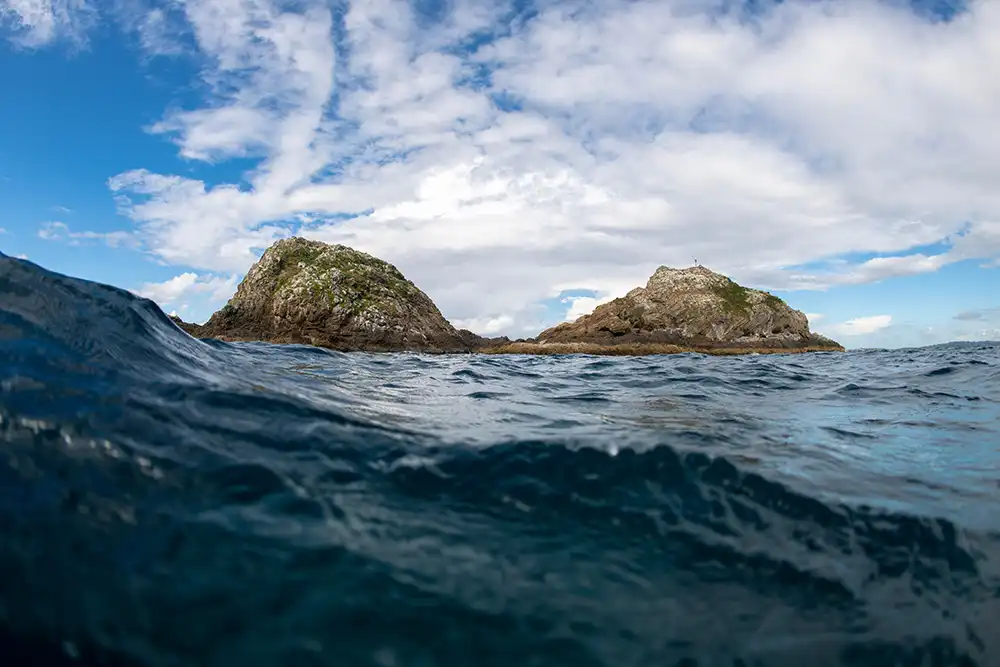
A coroner’s inquest in New South Wales (NSW), Australia, into the 2019 scuba diving death of British music producer Karl Bareham has heard he may have died from Immersion Pulmonary Oedema (IPO) precipitated by chronic alcohol abuse.
New South Wales Coroner’s Court was also told that poorly functioning dive equipment may have played a part in the 37-year-old’s death.
Mr Bareham was diving at a popular dive site near Julian Rocks – also known as Nguthungulli – approximately 2.5km off the coast of Byron Bay on 24 September 2019 when he was found unresponsive on the sea floor with his regulator out of his mouth.
Bareham, a British citizen living in Canada at the time, was a certified diver with 21 logged dives. He had arrived in Australia the day before and taken a refresher in the morning prior to his dive.
Related articles:
- Immersion Pulmonary Oedema: the silent killer
- British snorkeller’s death attributed to Immersion Pulmonary Oedema
- Accused: a dive instructor’s wrongful prosecution for manslaughter
- BSAC Annual Diving Incident Report 2023 published
Although Mr Bareham suffered with chronic alcoholism, only low levels of alcohol were found in Mr Bareham’s blood post-mortem, which the court heard was probably from having ‘a couple of drinks’ the night before.
Witnesses – including Bareham’s dive guide – said that they could smell alcohol on his breath before the dive that morning, but he did not appear to be impaired.
Two medical experts giving testimony before the coroner said that Bareham’s alcoholism may have been a contributory factor in a ‘sudden cardiac event or seizure’ which ultimately caused his death by drowning.
A third medical expert, Dr Glen Hawkins, however, suggested that Bareham’s cause of death was attributable to Immersion Pulmonary Oedema, a condition brought on high blood pressure which causes divers’ and swimmers’ lungs to spontaneously fill with fluid when submerged in cool water.
Dr Hawkins said that Bareham’s liver disease and cardiomyopathy – an enlargement of heart muscles which can be caused by chronic alcohol abuse – predisposed him to suffer an IPO.
IPO is known to cause divers to think their air supply or regulator is malfunctioning, which can lead to them removing it from their mouths in panic.
Scuba diving technicians testifying at the inquiry have said that the regulator Mr Bareham was using was not fit for purpose. NSW police diver Senior Constable Craig Dodd told the court that the regulator second stage’s cracking effort was ‘unusually high’ and found that it was ‘significantly harder to breathe off’ at a simulated depth of 9m during a dry chamber dive.
It was later revealed to the court, however, that the regulator had been left exposed to sand and seawater while attempts were made to resuscitate Mr Bareham, and that the gauge used to test the regulator cracking pressure had not been properly calibrated – both of which raised questions over whether or not the regulator could be considered unsafe for diving at the time Bareham was using it.
When questioned about the condition of the regulator and its role in Bareham’s death, Drs Millar and Hawkins said that while the regulator’s cracking pressure might have been high, most people would have still been able to breathe from it underwater, and would have attempted to surface if it had presented a genuine problem.
Bareham’s father and sister have flown out from the UK to attend the hearing, which is expected to conclude on Friday.
- New shark-repellent hook could cut longline bycatch by more than 60 per cent - 17 February 2026
- Perth dive operator fined after leaving divers behind - 16 February 2026
- Aggressor Adventures announces upgraded Red Sea Aggressor IV - 13 February 2026


